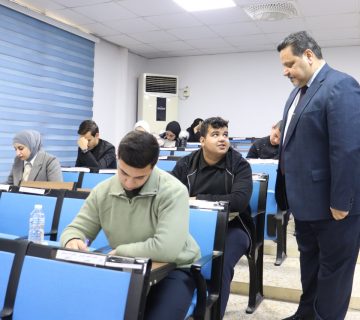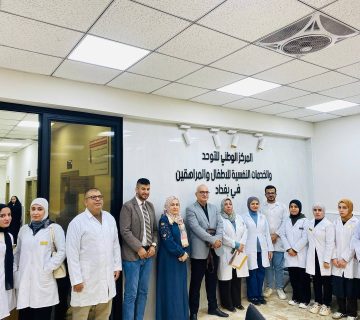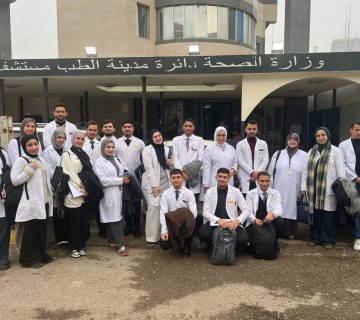The Faculty of Nursing at the University of Baghdad discussed the master’s thesis submitted by student Makarem Ali Ziyara, entitled “Using the Health Promotion Model to Understand Preventive Behaviors for Polycystic Ovary Syndrome Among Middle School Students,” supervised by Assistant Professor Dr. Raad Karim Faraj in the faculty’s main hall.
The study aimed to understand and identify the factors affecting the health behaviors of school students, such as physical activity, nutrition, and stress management, and their relationship to body mass index, age, and family social status, with the aim of promoting the prevention of polycystic ovary syndrome, which is a common health problem.
The study reached important conclusions, most notably that students with a low body mass index were more responsible for their health, while a high body mass index was associated with greater difficulty in managing stress and tension. The results also showed that a better socioeconomic status of the family had a positive impact on the students’ ability to better manage stress to prevent the syndrome.
The study recommended the establishment of effective cooperation and partnership between community health nurses and Ministry of Education officials, with the aim of creating a large-scale national health promotion program targeting middle and high school female students and developing health activities specifically for them. The researcher received a grade of “very good.”
Focusing on preventive health at an early age is the cornerstone of achieving the Sustainable Development Goals, namely Goal 3, “Good Health and Well-being,” and Goal 5, “Gender Equality,” by empowering girls with the necessary health knowledge. Educating female students about health risks and how to prevent them ensures the creation of a generation of women who are aware of their health, which contributes to building healthy and sustainable families and communities.










